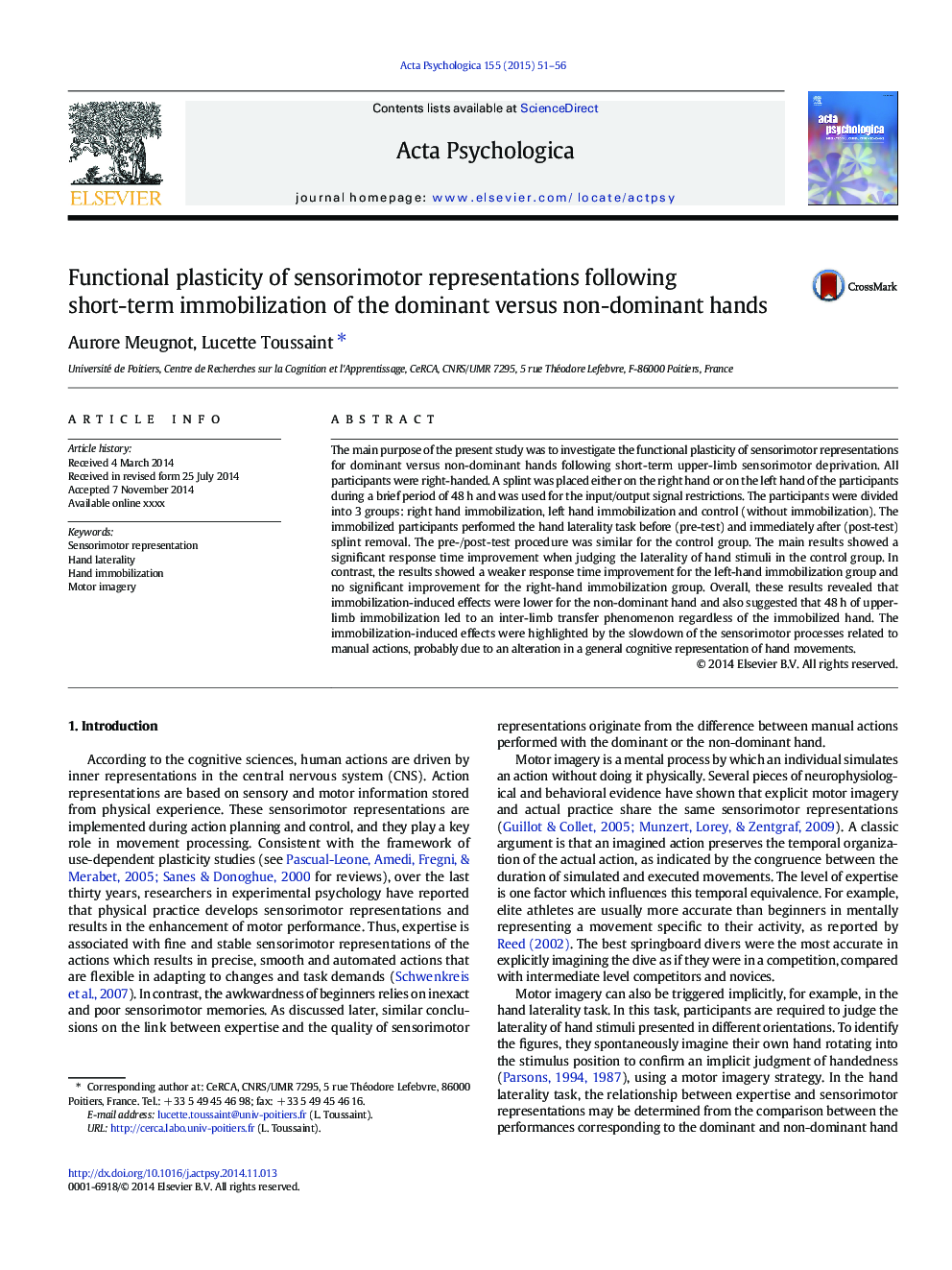| Article ID | Journal | Published Year | Pages | File Type |
|---|---|---|---|---|
| 7277510 | Acta Psychologica | 2015 | 6 Pages |
Abstract
The main purpose of the present study was to investigate the functional plasticity of sensorimotor representations for dominant versus non-dominant hands following short-term upper-limb sensorimotor deprivation. All participants were right-handed. A splint was placed either on the right hand or on the left hand of the participants during a brief period of 48Â h and was used for the input/output signal restrictions. The participants were divided into 3 groups: right hand immobilization, left hand immobilization and control (without immobilization). The immobilized participants performed the hand laterality task before (pre-test) and immediately after (post-test) splint removal. The pre-/post-test procedure was similar for the control group. The main results showed a significant response time improvement when judging the laterality of hand stimuli in the control group. In contrast, the results showed a weaker response time improvement for the left-hand immobilization group and no significant improvement for the right-hand immobilization group. Overall, these results revealed that immobilization-induced effects were lower for the non-dominant hand and also suggested that 48Â h of upper-limb immobilization led to an inter-limb transfer phenomenon regardless of the immobilized hand. The immobilization-induced effects were highlighted by the slowdown of the sensorimotor processes related to manual actions, probably due to an alteration in a general cognitive representation of hand movements.
Keywords
Related Topics
Life Sciences
Neuroscience
Cognitive Neuroscience
Authors
Aurore Meugnot, Lucette Toussaint,
